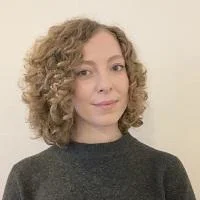Dr Miriam Tresh

Miriam Tresh is Assistant Professorial Lecturer and Deputy Head of Department (Teaching and Learning) in the Department of Psychological and Behavioural Science.
What are you currently researching?
Currently I’m researching democratic aspirations in Libya and the role of public perception and attitudes in democratic transition processes. I’m applying theoretical frameworks from psychology and behavioural science to large scale data. The aim is to understand the dissonance between people’s stated preference for democracy and increasing political apathy in the context of socio-political and economic uncertainty.
This work has emerged from my wider interest in how people seem to readily adapt to high-stakes environments of exceptional background risk (i.e., risk or uncertainty out of our immediate control). For instance, my research has shown patterns of pandemic risk perception and associated negative mental health are not normative. For those living in conditions of pre-existing risk of war in Libya, the pandemic unravelled against the backdrop of a more immediate crisis and so was not perceived as the existential threat as we had experienced it.
I’m also working with undergraduate students to develop further research projects that explore how background risk and uncertainty impacts individual and society-level perceptions, attitudes and behaviours more broadly. Some of this research is attempting to simulate aspects of risk and uncertainty in the lab, or drawing on available datasets to examine risk perception in various other contexts.
Why did you choose this area of research?
My interests were sparked by two observations. First, I was struck by people’s adaptability to high-stakes environments of risk and uncertainty. Not just conflict, but people readily adapt to economic instability, natural disasters and most recently the Covid-19 pandemic. Second, I believe there is a greater role for psychology and behavioural science to play in understanding and addressing major issues in a more socially and culturally sensitive way. For example, following developments in Libya I believe, political agendas aside, not accounting for the immediate context is one factor contributing to diplomatic failures to facilitate processes and mediate negotiations. Libya is an interesting case study, but it’s certainly not the only context in which the role of psychology could better inform responses in the context of uncertainty.
What wider impact would you like your research to have on the world?
I’d like my research to better inform how policymakers and stakeholders facilitate and mediate efforts to resolve conflict, and social and political issues, both within and across cultural and social divides. Policy responses in various domains (health, politics, diplomacy, etc.) must be more sensitive to the social and cultural backdrop against which events, and people’s responses to those events, unfold. In fact, in a book “Behavioural Conflict: Why Understanding People and their Motivations Will Prove Decisive in Future Conflicts”, Andrew Mackay and Dr Steve Tatham make this same case, arguing the main lesson learned from conflicts has been a failure to understand people and a bias to examine people’s behaviour through our own cultural and historical lens, rather than their own.
More broadly, the same lessons apply to other contexts, particularly at a time when upheaval seems magnified. I would like my research to show that people’s behaviour in these various contexts of risk is ‘rational’ and so policy responses should reflect that.
You are a course tutor on the BSc Psychological and Behavioural Science programme. What have been your highlights so far?
It’s been a privilege to have been part of designing the BSc Psychological and Behavioural Science programme since its inception in 2019, and to work with a talented group of academics who have a genuine drive to deliver an undergraduate programme that is cutting edge and truly grounded in the real-world. There have been many highlights but one stand-out moment for me was a Simulation Assessment we ran for the first time in Summer 2022 with our final year students, who were also our first graduating cohort.
We set up our own, albeit fictitious, not for profit organisation “Next Generation Behavioural Science” and hired our final year undergraduate students to a number of professional roles. Their task was to demonstrate how the psychological and behavioural sciences could be utilised to investigate pressing real world issues, from the increasing use of cryptocurrencies, to tackling administrative complexity in accessing public services and dark patterns in consumer outcomes. The assessment has been a highlight for me as it represents the culmination of the programme.
We took our students to Canary Wharf, they worked hard to produce white papers that presented scalable, ethical and culturally sensitive recommendations using everything they had learnt during their time with us. It was also a great opportunity to take PBS out of the ivory tower and have students really grapple with the realities of applying insights to policy and practice. Ultimately, it was a highlight for me because as faculty, we could pause and take stock of what we had helped our students achieve. And I’m looking forward to the next iteration!
What have you got coming up over the next year?
This year I’m working on some pedagogical research, exploring the PBS curriculum and assessments. The decolonise the curriculum initiative is one that has really resonated with me and I believe PBS, concerned with the global human condition as it is, should be leading on acknowledging the discipline’s historical, political and social ties. As part of the IEAP Fellowship, I’ve been working with undergraduate and postgraduate students in PBS to understand their perceptions of the curriculum, and of efforts and resistance to decolonising. This year I plan to continue this ground work and use the work to inform practice in the department and wider School. At the same time, I’ll be examining the impact of some of the innovative assessments we’ve adopted on the undergraduate programme, notably the simulation assessment. I’ll be leading a research project to determine the impact and authenticity of simulations as an assessment form for PBS learning and teaching. Beyond that, I plan to continue building my research portfolio.